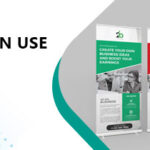Recycling of waste materials is an extremely critical matter in today’s world. Unplanned and widespread uses of a variety of packaging materials (like plastic) have wreaked havoc with the earth’s environment. It has caused multiple types of pollution, put to risk the existence of different land and sea animal species, and caused widespread health issues.
What is Recycling?
In simple terms, recycling means reusing discarded materials by processing them in certain ways so that they are fit to be used afresh. Paper, jute bags, the packets that contain those delicious French fries that you enjoy – all can be and are being, recycled more and more. But the major concern is with plastic.
Plastic causes a lot of damage to the environment since it is non-bio-degradable. That means if it is buried, it destroys soil fertility. If it is thrown in the rivers or seas, it pollutes the water and if the marine animals and birds consume the plastic, they can die. So, recycling plastic is a major issue that is concerning governments and organizations around the world today. More and more countries are becoming aware about manufacturing bio-degradable or environment-friendly plastic and to recycle whatever is already in use.
Recycling Benefits
The overall benefit of recycling is saving the environment. Pollution from discarded materials has reached alarming proportions globally, so it is absolutely necessary to increase the recycling efforts in order to protect the earth from further pollution.

There are several advantages to be gained from a sustained recycling activity. Let’s take a look at the top 10 benefits of recycling below.
1) Puts a Break on Resource Consumption
Nature’s resources are not infinite. We are consuming it at a very fast rate, much faster than the rate of replenishment. This is leading to a rapid depletion of such resources, thus emptying the planet. However, a sustained recycling effort can collect materials already manufactured, break them down as needed, and manufacture fresh products out of these materials. This prevents the sourcing of fresh natural resources, thereby protecting the same. And that, in turn, conserves and preserves these resources and also the earth in totality.
2) Considerably Reduces Pollution
Plastic, cans etc. have been major contributors of air, land, water pollution when they lie discarded. This creates severe hazards with human and animal health. If these articles can be successfully recycled, pollution will reduce drastically and it will make the earth a much healthier place to live.
3) Recycling Protects the Nature
Recycling assists in maintaining the ecological balance of the world. Wildlife, forests, deserts are all-natural resources that need protection from human misuse and abuse. Untreated artificial waste material is a major cause of ecological destruction and consequent imbalance. That’s why, every human being should be aware of the importance of recycling waste material and contribute to the cause in his/her own way.
4) Energy Requirement is Reduced
Recycling any product requires much less energy compared to manufacturing a new product. It also saves considerable time. And since it requires less energy, it consumes lesser fuel or power. This, in turn, contributes to a greener planet by destroying lesser natural resources.
5) Develops a Responsible Mindset
If everyone is aware of the necessity & benefits of recycling, then they will stop throwing waste material here and there, and save it to be given for recycling. This creates a responsible mentality for everyone and helps them to play a proactive role in protecting the natural resources and the earth in total.
6) Lesser Dependence on Importing Raw Materials
Many companies import raw materials from abroad to manufacture their end products. This increases the cost of production that gets reflected in the selling price of the end product. However, recycling existing material can decrease this dependence on imports because the raw material would be readily available domestically. This will reduce the manufacturing cycle, cut costs of production, and help the manufacturing company to pass on this benefit of lower production costs to the end consumer, in the form of lower prices.
7) Helps to Generate Jobs
The recycling industry has the potential to generate a lot of jobs. Across the country, in big cities, smaller towns, and also villages, collection agents can be hired who will collect the waste products from households and organizations and take it to the recycling plants. With more and more people contributing to the process, there will be the need to set up more recycling plants. This will need a fair amount of hiring in the form of plant operators. And finally, there will be a need to hire more and more people who would deliver the raw materials to manufacturing facilities.
8) Curbs Global Warming
If the waste disposal is not done in an effective manner (like burning plastic or e-waste), it emits a lot of greenhouse gases that contribute to global warming & climate change. However, an effective recycling process implies minimal emission of such gases, scientific waste disposal, and next to zero contribution to global warming.
9) Reduces Landfills
Increasing landfills for dumping waste is a major cause of environmental concern. But if waste materials can be effectively & successfully recycled, then the civic authorities need not find newer sites for landfills. This will curb the pollution levels of the cities and will also drastically bring down health problems that are related to such waste dumping.
10) Acts as a Money Saver
Countries that are into effective recycling of waste materials need not spend too much money on afforestation drives as it is already conserving greenery by reducing the usage of natural resources. The country also spends less on importing fossil fuel or mining for minerals as it is already using the waste material as raw materials and utilizing much less energy to convert them into finished goods. The money saved this way can be used in the infrastructural development of the country.





